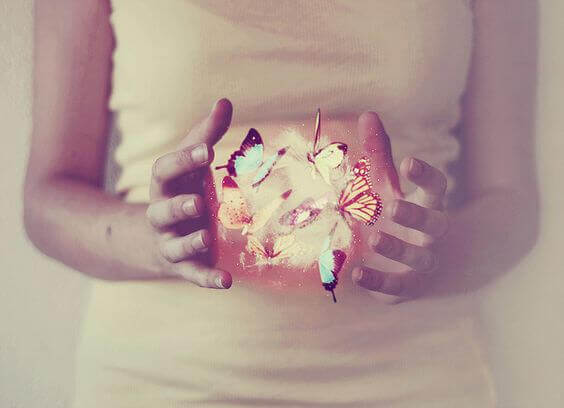Detachment Is A Form of Personal Integrity


Written and verified by psychologist Valeria Sabater
The word “detachment” is currently being used a lot in books and articles on self-help, personal growth, and spirituality.
Something that’s happening very often is that we have a tendency to confuse certain terms with others. Detachment doesn’t mean “not having anything” or creating emotional relationships where you avoid emotional attachment that brings you security and well-being.
Also Read: Teach Children Emotional Intelligence
Detachment is something more intimate. At the same time, it’s essential for your psychological and emotional balance. Detachment means trying to avoid the things and people that possess you.
You have to be able to give yourself to others freely to create more harmonious and respectful relationships. These relationships need to be free of dependencies, victimization, or the recurring words “without you I am nothing.”
See Also: 6 Signs You are a Victim of Verbal Abuse
We invite you to reflect on this.
Attachment and detachment
The term “detachment” has its roots in Buddhism. However, in the field of psychology, we have, for example, growth with attachment and healthy attachment.
These are two distinct concepts that you must understand so that you can benefit from them. You can use these concepts to build relationships that are fuller, where you give and get respect at the same time.

Healthy attachment
For Buddhism, one of the major sources of suffering is attachment. However, the connotation that it has here isn’t the same as attachment in the field of growth or emotional relationships.
Let’s take a look at this in detail.
When human beings are born, they need their fellow men to live and learn about the world.
- Growth with healthy attachment is where parents tend to the needs of the child. It is where the child is allowed to stay near to feel secure, and where caresses and hugs and a bond nurtured by love are key for the development of this child.
- Emotional relationships based on a mature attachment are those where two people give themselves to the other freely in order to build a respectful and happy relationship.
- The people we need to strengthen ties with are those who we love, those who we can develop a kind of attachment in which we feel safe. These people are those who we feel close to and who we love and are loved by.
The moment that dependence, blackmail, and the need for control arise, that relationship is no longer healthy. It turns into something toxic.
Detachment is a form of personal integrity
Now, we’ll go deeper into what detachment is to clarify some important aspects. This term doesn’t mean that you have to give up everything you have. Getting rid of absolutely everything is not synonymous with happiness.
Lacking essential things is a major source of uncertainty, fear, and sadness. That being said, too many dependencies can also bring suffering. These include activities that tie us to things, people, and places.
- If you build your life around one person, that can be bad. When your happiness depends on the moods, whims, and attitudes of one individual, that could bring you pain.
- If you are so attached to your family that you don’t dare to move out of the house, that could bring you pain.
- If you’re tied to your job for any reason, that could bring you pain. There are many reasons this might occur. It could be the desire to get a better position at work, or earn more money, or even to move up in society.
- In all of these cases, something is bringing you pain. You are forgetting to be happy.

Detachment is a form of personal integrity. It reminds you that happiness doesn’t just happen. Also, it shows that happiness is not synonymous with obtaining more things.
Happiness is first born inside of you. This then lets you feel complete, free, and mature.
How to apply “detachment” in your daily life
- Accept uncertainty. When you decide on a goal, don’t put all of your hopes and happiness on the outcome. Learning from the process and accepting uncertainty are fundamental.
- Don’t base your well-being and happiness on what everyone else is doing. Or even what they aren’t doing. That is a source of suffering you should learn how to control.
- Decide to depend on your own actions. Also, know how to be receptive to what others do spontaneously. But don’t expect anything.
- If you obsess over people doing things for you, you’ll be unhappy.
- Don’t confuse wants with needs. They aren’t the same. For example, I want to win the lottery because I need to get the prize money to fix all of my problems. This is just something I want.
- Insecure people are the ones who cling the most to those around them. They value having things because that is how they satisfy their emotional needs.
- Take care of your self-esteem. Fill your needs with the security of knowing you are a whole person. Know that you are not only capable of being happy, but making others happy too.
All cited sources were thoroughly reviewed by our team to ensure their quality, reliability, currency, and validity. The bibliography of this article was considered reliable and of academic or scientific accuracy.
-
Almada, S. (2015). El desapego es una manera de querernos. Literatura Random House.
-
Enguita, M. F. (2011). Del desapego al desenganche y de èste al fracaso. Revista de Sociología de la Educación-RASE, 4(3), 255-269.
-
Martínez, C., & Santelices, M. P. (2005). Evaluación del apego en el adulto: una revisión. Psykhe (Santiago), 14(1), 181-191.
This text is provided for informational purposes only and does not replace consultation with a professional. If in doubt, consult your specialist.








